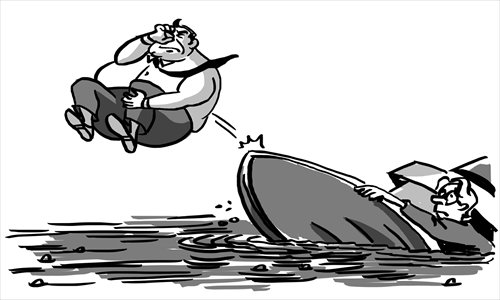Local fantasies of new states flourish thanks to global crisis

It was 1861 when a handful of volunteers from northern Italy marched their way from Sicily to Turin flying a red-white-green flag, unifying the nation under the rule of Victor Emmanuel II.
Since then Italy has more or less kept unchanged its iconic "boot" shape, protected by article five of the constitution where the Republic is clearly defined as "one and indivisible."
But beside the words in article five, and the undisputed support of the national football team, Italian patriotism tends to be a little fading on the edges.
Ethnic minorities on the borders have been looking for proper protection of their identities, and the same article five of the constitution "recognizes and promotes local autonomy."
Autonomous regions were established, where local languages are protected by law and accompanied by very favorable fiscal conditions.
Nevertheless, in times of crisis, political or economic, the card of independence is an easy one to play, and brings a fine pot of votes, especially in regions which don't have the benefits of autonomy.
In the early 1990s, when a series of corruption scandals and a national judicial investigation called "Mani Pulite" (clean hands) wiped out the old system of parties, the Lega Nord (Northern League) secessionist movement gained its momentum in the northern regions.
With its charismatic and populist leaders, the Lega managed to find a place in government, first with a center-left coalition, then again with Berlusconi's center-right alliance.
Right up to former prime minister Silvio Berlusconi's last government in 2011, the Lega managed to influence the right-wing agenda. Its MPs lobbied in the Roman power palaces for increasing devolution to the administrative regions, and screamed in the northern squares for a full independence of "Padania," a made-up name for the Po Valley region, and against the "corruption" of Rome.
Inspired by the nationalist slogans of Scotland and Catalonia, they scored double digits in the 2009 administrative elections, passing 22 percent in Lombardy and touching 30 percent in Veneto, winning the presidential office in Venice and Turin.
Talking about independence brought the memories of the Most Serene Republic of Venice, once the greatest trading nation in Europe in its 16th century heyday, back to people's minds, and thousands of votes to the party's lists.
Earlier this month, a rally was organized by the pro-independence movement Indipendenza Veneta, a branch of the Lega Nord that was expelled from the main party in the late 1990s.
Around 1,000 people crossed the Grand Canal on Gondola's, asking the Regional Council to start the procedures for the secession from Italy, supported by a petition with 20,000 signatures.
"We argue that our right to self-determination is being violated," Lodovico Pizzati, a former World Bank economist and leader of the movement said in an interview with the UK Telegraph.
"The economic situation here is really desperate, with the recession hitting small and medium-sized businesses," Pizzati said, "Meanwhile of the 70 billion euros we pay in taxes to Rome, we get back about 50 billion euros, directly and indirectly. We are losing out on 20 billion euros a year."
The independence activists are said to have brought their case to José Manuel Barroso, the president of the European Commission, refusing to have any dialogue with "Italy."
But what Pizzati doesn't tell his supporters is that having your own little country can be quite an expensive hobby both politically and economically.
As part of Italy, Venice is also part of the EU, but would its membership be confirmed in the unlikely case of secession? Would its currency be accepted? Would its legal status be recognized by other states when some of them may have their own problems with similar movements?
Those are questions not asked in Venetian squares, where waving the beautiful flag of Saint Mark is a much better way to dream about a local glorious past, forgetting about a globally sized recession.
The author is a freelance journalist based in Bari, Italy. lovecchio.mauro@gmail.com